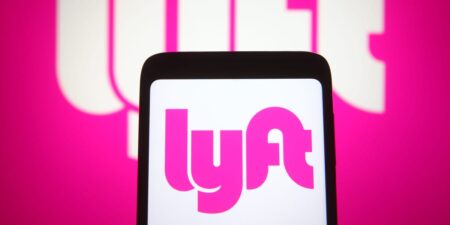- James O’Brien is a UC Berkeley professor who says tech graduates struggle to secure top jobs.
- He says AI and outsourcing are affecting entry-level tech positions.
- O’Brien says we need to embrace universal basic income as AI shrinks the job market.
This as-told-to essay is based on a conversation with James O’Brien, a professor at the University of California, Berkeley. The following has been edited for length and clarity.
I’ve been a professor of computer science at UC Berkeley since 2000.
Recently, I’ve noticed how difficult it is for tech graduates to enter the job market right now.
At least in technology, it’s a very different landscape than it has been in the past. It’s not just my students; it’s a hard time for everyone right now.
Over the years, students I’ve worked with, taught, or known from other schools have typically had little trouble finding a job after graduating with a tech degree.
There were lots of opportunities. Quite often, recent graduates would receive multiple offers and be left to try to decide between two really great choices.
But now, things have changed. There’s still demand for people, and some people are getting jobs, but not across the entire industry. Our view from Berkeley is also a little distorted because we’re one of the top schools, so most of our students are still getting offers.
But rather than getting five great offers, they might only get one great offer or an offer from their second choice. This is certainly not what we’ve seen in the past.
There are also people coming from other schools that don’t have quite the strong reputation that Berkeley does, and they’re not getting job offers at all.
Some programming roles are disappearing
It’s not just the technology jobs that are being affected.
Any “hands-on keyboard job” is at risk of being contracted out offshore or outsourced to AI.
Another problem is that many companies are also trying to consolidate a bit. These things are all coming together like a perfect storm.
In tech, programming positions that aren’t that demanding are disappearing. You can now use a programming assistant that’s based on a large language model to basically write a lot of code for you. So, where a company would have had to hire one or two people before, they no longer need to.
They are still entry-level jobs that involve basically babysitting the AI — but these systems are getting better very quickly.
Certain specializations like CS-AI or data science still seem in high demand, but I’m concerned that this may not last.
The job market is still shrinking, and I think that may accelerate over the next few years. It’s definitely something we’ve seen over the last two to three years, but this last year, it has accelerated.
Students are aware that the job market is changing, and many of them are considering specializing in AI or data science because they want to take advantage of this new situation.
We need to accept the idea of universal basic income
It’s tempting to say we’ll somehow protect the jobs and prevent them from disappearing, but I don’t know how successful that would be.
If a technology exists for doing something faster, better, and more efficiently, it’s very hard to tell someone not to use that. We can’t demand companies spend a lot more money and do it more slowly with a human person.
That approach would stifle innovation and business.
I think we need to accept the idea of paying people a universal basic income — a system that gives people a basic amount of support that’s not contingent on anything. That way if you get a job, you still get that basic support. But if you don’t get a job, you still have support.
I can understand when people have issues with UBI and question why the results of their work should be given to someone else.
But if machines are doing the work instead of us, then it’s a different formula. Instead of taxing people, we would be able to tax the work done by machines or AI automation and use that to provide a basic level of income.
Read the full article here
















